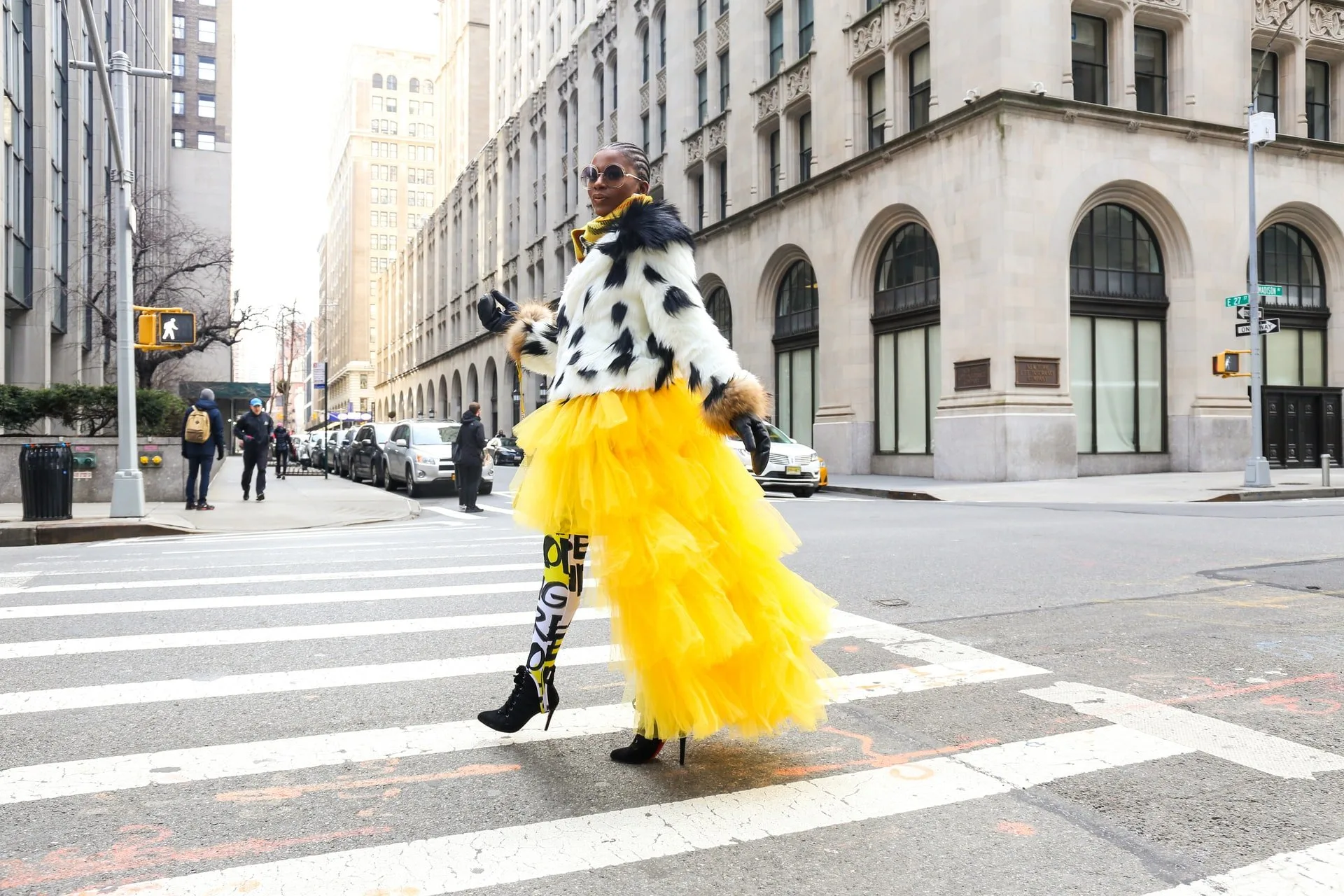Color can affect our moods in more ways than you think. There’s a reason why we often spend hours trying to decide on a color scheme for our bathroom walls or our wedding day. It’s because the surrounding colors can impact, as well as boost our moods. This has laid the way for a new fashion trend that focuses on boosting our mental health. Enter dopamine dressing.
Dopamine Dressing Is A Mental Health Fashion Trend
Dopamine dressing is basically wearing clothes that will make you feel good. It’s that one outfit that, once you put on, your entire mood is lifted, and you’re confident that you can take on whatever life throws at you. It could be that figure-hugging black dress, your favorite pair of faded blue jeans, or even a pair of comfy sweats.
Dopamine is a brain chemical that plays a role in how we feel pleasure. Not only can it counteract depression and improve your mood (1).
With that said, it appears that your favorite outfit being a certain color may also serve to boost your mood.
Can wearing the right colors actually make me happier?

Photo by Calvin Lupiya on Unsplash
Karen Haller is a color psychologist and author of The Little Book of Colour. According to her, the right colors may be exactly what you need to improve a somber mood.
“Colour is a great way to lift our spirits and boost our moods in an instant. Our confidence can be boosted when we wear colours that we love and feel good in…We instinctively feel and behave differently around colours because of how we take the colour in through our eyes and through to the part of our brain where our emotions reside.”
What does the research say?
A study published in the Journal of Experimental Social Psychology had participants wear clothing that they felt held some form of symbolic meaning. For example, some participants wore a garment that some may describe as a doctor’s coat, while others may describe it as a painter’s coat.
The participants who wore what they thought was a doctor’s coat not only performed better in a task but their confidence also increased, and the researchers acknowledged that clothing can definitely affect us on a more psychological level.
A separate study published in the European Journal of Social Psychology asked participants to rate the attractiveness of people wearing different colored T-shirts. The results revealed that individuals were perceived as more attractive if they were wearing the color red.
Additionally, in examining the dress to impress mantra, a study, led by a team of psychological scientists from California State University, Northridge, and Columbia University, found that the clothes we wear can influence our cognitive abilities. The researchers found that dressing to impress amplified people’s ability to engage in abstract thinking.
What colors should I be wearing?
Now while every color will have a different effect on individuals, depending on what they associate that color with, there are a few colors out there that can help improve your mood, all while making you look good.

Photo by Marius Ciobanu on Unsplash
Red
While people may often associate red with impending danger, those wearing red are more likely to feel passionate and energized. Additionally, red is definitely an attention-grabbing color. A study from the University of Rochester found that women are more drawn to men if they’re wearing red as they associate it with them being of higher status as well as more likely to make more money.
Yellow
Many associate the color yellow with the sun, so it’s no wonder that wearing the color can help to boost your mood. Perhaps more Londoners should look into wearing more yellow as they don’t get to see the sun much?
According to one study, yellow was found to invoke positive emotions in individuals, so if you can’t spend some time in the sun, why don’t you add a splash of yellow to your wardrobe and boost your mood?

Photo by Eye for Ebony on Unsplash
Blue
The expression feeling blue definitely has little to do with the effect that the color has on our moods. Blue is a stable color and this is likely why it has such a calming effect on us, as it makes us feel safe and relaxed.
Perhaps this is why most police uniforms are the color blue?
Green
Green is associated with money, but it’s also closely linked to nature. As such, wearing green can help you feel not only refreshed but also ready for the day ahead as the color may encourage growth and abundance.

Photo by Astghik Khachatryan on Unsplash
Black
There’s power in the color black.
Now while some of us may associate wearing black with funerals, or with being in a low mood, black is actually a powerful color that can convey seriousness and intelligence.
So, if you’re headed to a big meeting or a cup of coffee with an intimidating friend, try wearing black and see if it boosts your confidence.

Photo by Andrey Zvyagintsev on Unsplash
White
No, you don’t only have to wear white at your wedding and yes, you can wear it after Labor Day.
White represents cleanliness and purity and if you’re looking to calm any raging thoughts and emotions, wearing white can be a peaceful and soothing experience.
Pink
Pink is flirty and fun color so if you’re in a playful mood, but you’re worried about the brightness of a yellow dress, then you can put on something pink.
Not only will it put you in a cheerful mood, but pink can also evoke compassion and love so don’t be surprised if people come out to you to enjoy some of your warmth.
Conclusion
Like many things, color can definitely affect the way we feel. So, if you’re feeling a little down, and you’re unsure of what you can do to boost your mood, why don’t you press play on your favorite song before playing dress-up with the most colorful section of your closet?
References
Berthold, A., Reese, G., Martin, J. (2017). The effect of red color on perceived self-attractiveness: Red color and self-attractiveness. European Journal of Social Psychology. 47. 10.1002/ejsp.2238.
Hajo A., Adam D. G. (2012). Enclothed cognition, Journal of Experimental Social Psychology,
Volume 48, Issue 4, Pages 918-925, ISSN 0022-1031, https://doi.org/10.1016/j.jesp.2012.02.008.
Slepian, M. L. et al. (2015) ‘The Cognitive Consequences of Formal Clothing’, Social Psychological and Personality Science, 6(6), pp. 661–668. doi: 10.1177/1948550615579462.




![women [longevity live]](https://longevitylive.com/wp-content/uploads/2020/01/photo-of-women-walking-down-the-street-1116984-100x100.jpg)










